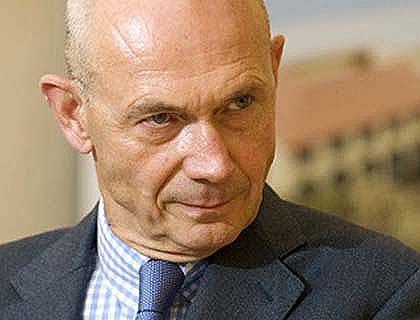GENEVA - Due to globalized supply chains, trade protectionism no longer protects countries, the director-general of the World Trade Organization (WTO) Pascal Lamy told Xinhua in an exclusive interview on Tuesday. Lamy said he believed protectionism is neither a remedy for unemployment nor an effective way of boosting demand during an economic downturn.
"If you hit your imports, in reality you also hit your exports," the WTO chief said, adding that protectionism should be avoided, especially in times of economic crisis.
While there is no evidence of major trading nations introducing sweeping protectionist policies, Lamy warned "the risk is there" and reminded that countries need "to be very vigilant."
China joining the WTO almost 10 years ago not only forever changed global trade patterns, but also many things in the WTO itself, he said. "The organization made a big step forward when China joined," Lamy remarked.
"What many people do not always realize, because they are very much focused on how much China exports, is how much China imports," he added.
China's imports have grown at an average of 20 percent a year for the past ten years, which according to Lamy, "is an enormous change."
Asked why China has still not been recognized by the European Union as a market economy, Lamy said "what many people do not realize is what this market status economy in China is about." "The difference between market economy status and non-market economy status has to do with very precise, specialized areas," he said.
Commenting on the U.S. senate passing a controversial currency bill last week aimed at introducing tariffs on Chinese imports for alleged "currency manipulation" by China, the WTO chief the matter is "very complex" and that there is no consensus on how currency variations impact trade. "Many economists will say, 'Yes, it does.' Many economists will say, 'No, it doesn't.' Some would say it does short-term, but not long-term.
Some will say it does up and down, so overall maybe not much of a difference," Lamy said. "Most of the economists believe that, for instance, the big trade imbalance between the U.S. and China has nothing to do with trade, just that the U.S. are consuming much more than they are saving, and the Chinese are saving much more than they are consuming," he added.
Lamy said the WTO is currently discussing the currency issue with the help of a specialized committee set up after an initiative taken by Brazil some months ago. (Xinhua)

